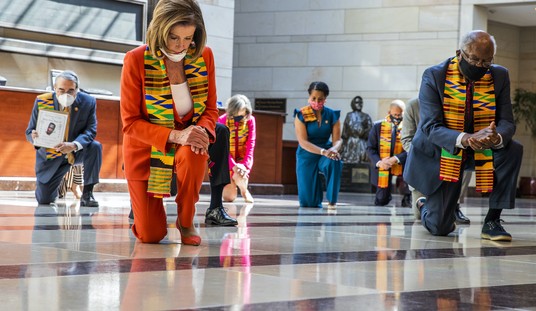Perhaps it might take more than one election for the message to sink into the heads of Republican leadership. Three of the GOP “cardinals” on the House Appropriations Committee only waited a week before reminding people that the moratorium on pork is only temporary, and that they look forward to the day when members can earmark funds for their own districts:
Three Republican cardinals on the House Appropriations Committee say they view the ban on earmarks as temporary and that lawmakers should retain the right to direct spending to their districts.
None of the three spending-subcommittee chairmen have a specific timeframe or plan in mind to resume earmarks, but they said earmarking should be restored once the public has more confidence in the process.
“I don’t find a problem with me deciding that I want some of the money in the state and tribal assistance grants going to help a community in Idaho rebuild their water system,” said Rep. Mike Simpson (R-Idaho), the new chairman of the Interior and Environment spending subcommittee and a close friend of Speaker John Boehner (R-Ohio), who ushered in the new GOP rules.
“I can make that determination because I know that district better than somebody from the EPA,” he added.
The problem is that both Republicans and Democrats have spent the last twenty years that they can’t keep from abusing earmarks. They get used mainly for buying support or self-aggrandizement rather than to ensure efficient use of taxpayer money. Worse, pork gives lawmakers a big stake in passing bloated spending bills rather than fight for cuts in spending as politicians divvy up spoils in order to ensure passage. That’s one of the reasons why the failure of the omnibus spending bill in the lame-duck session was such big news; usually, the pork that festoons those bills ensure their passage.
Furthermore, Congress has imposed requirements on executive-branch agencies for competitive bidding on projects like rebuilding water systems, or buying socks for soldiers and Marines, and so on. Those rules force at least some accountability in procurement and contracting with the federal government, although that remains an area where reform would do some good. But Congress doesn’t have to abide by those rules with earmarks at all; members can pick winners (and losers) themselves with their line items without any sort of accountability at all.
If Simpson thinks he knows better than the EPA about how to spend money, which is a pretty low bar to set in any case, then let Simpson propose those projects as separate bills subject to votes by the full House. At least that way, his choice of spending money has full public accountability — and since it would exist separate from other appropriations bills, would have no undue influence on votes on other funding. There should especially be more scrutiny when elected officials try to direct federal funds to their own districts rather than the under-the-radar pork method. That kind of sunlight would go a long way towards discovering graft and corruption before the money gets spent, rather than a couple of years or more down the road — especially when the road is named the Senator Foghorn Leghorn Highway, leading to the Senator Foghorn Leghorn Airport.
And even apart from the substantive problems with pork, is it so difficult to deal with accountability that the porkers couldn’t even wait a fortnight in the new session of Congress to start dreaming of the day when they could get back to bacon-hunting?








Join the conversation as a VIP Member